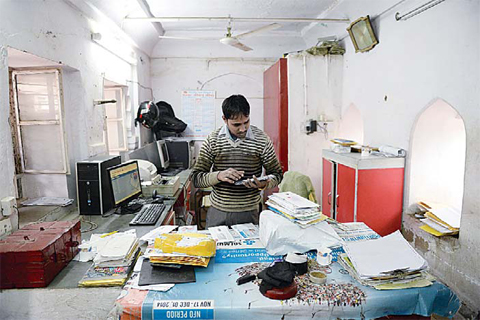HANOI: Vietnam has laid out a $15.5 billion blueprint to transition away from coal power, but environmentalists warned Sunday the plan fell far short of what was needed. The communist nation has committed to reaching net-zero carbon emissions by 2050, supported by the Just Energy Transition Partnership (JETP) program, under which wealthier nations would help developing countries switch to clean energy faster.
On Friday Vietnamese Prime Minister Pham Minh Chinh announced the multi-billion dollar Resource Mobilization Plan (RMP) on the sidelines of the COP28 climate talks in Dubai. “We commit to an open mechanism, good infrastructure, and smart management,” he told delegates.
However, environmentalists told AFP that Vietnam’s intention to use coal-fired plants until the end of their life operations, as well as shrinking civil society space, prompted concerns. Vietnam’s plan contained some “worrying” elements, chiefly the intention to use coal-fired plants “flexibly” rather than closing them early, said Leo Roberts, of environmental strategists EG3.
“What that means in practice is unclear, and is a slippery slope to using them extensively.”
He added it sent a clear message the country was not transitioning as fast or at the scale it should, “and that discourages investment in renewables”. Speaking on the phone from the sidelines of COP28, Roberts told AFP that successful energy transitions required input from all sections of society.
“The lack of a clear, inclusive consultation process has limited the scale of ambition of the RMP,” said Roberts. Five environmentalists have been jailed for tax evasion in Vietnam since last year, with an independent UN expert accusing Hanoi last month of targeting rights defenders. “The crackdown on civil society doesn’t just undermine the content of the RMP, but also how easy it will be to actually deliver it,” said Roberts.
Andri Prasetiyo, a researcher at the Senik Centre Asia in Indonesia, agreed with Roberts’ concerns. “The resource mobilization plan is not realistic, it’s not really progressive enough,” he told AFP. “The country is going to be giving a mixed signal towards renewable energy, which is definitely going to be dangerous.” After China and India, Vietnam has the world’s third-largest pipeline of new coal power projects, remaining reliant on fossil fuel to power its fast-growing economy. — AFP










